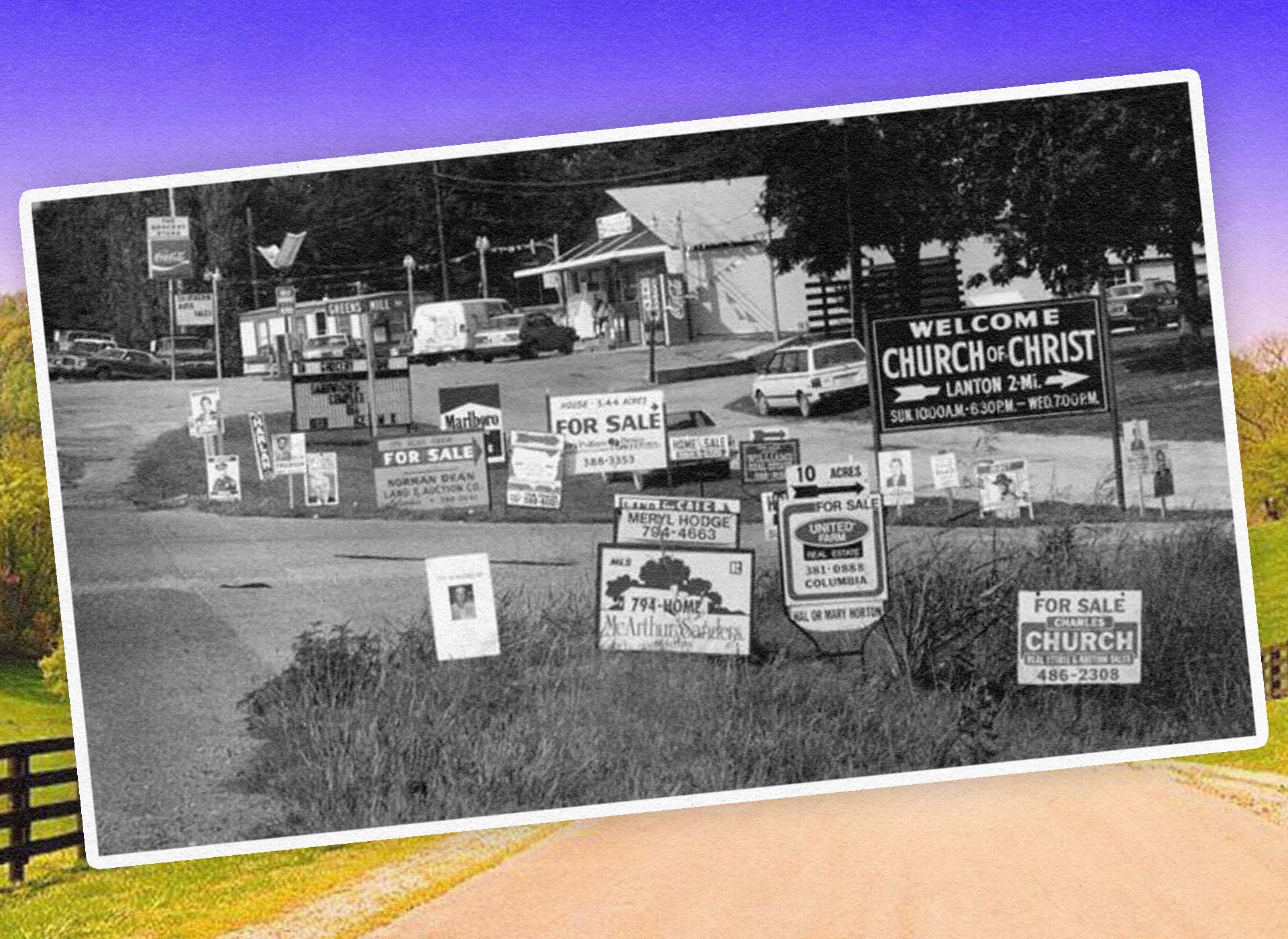
Progress and Peril
The Double-Edged Sword of Prosperity in Tennessee's Small Towns
"Regrettable" scarcely captures the essence of what is happening. The encroachment of concrete upon our Southern towns evokes feelings more closely aligned with heartache, even grief.
On one side, Tennessee is enjoying unprecedented economic growth, marked by historically low levels of unemployment. Conversely, however, the growth comes at the cost of eroding the very identities of some communities—identities once steeped in the Jeffersonian virtues of republican self-governance and agrarian roots.
These Jefferson-inspired ideals of community-based governance and agricultural heritage are quintessential American values that have deeply influenced the character of Southern communities. These principles advocate for a government that is both localized and directly accountable to its citizenry—a government not just of the people, but also by and for them.
Yet, this idyllic vision stands in sharp contrast to the contemporary realities many communities are experiencing, including my own hometown, which finds itself both blessed and burdened by Tennessee's economic growth.
Spring Hill's population has almost doubled in a decade, its unemployment rate stands at an historic low of 2.6%, and retail sales in the area have soared. This remarkable economic expansion is propelled by the state's overall financial success and the eagerness of Americans—especially those from high-tax Northern and Western states—to claim a share of the prosperity.
From a purely economic perspective, this influx of residents is undeniably beneficial. It brings increased consumer spending, a broader tax base, and new investments into local businesses and infrastructure. However, this growth comes with its own set of challenges: median home values have spiked by more than 60%, traffic congestion is now a constant issue, and the town has largely forfeited its identity as a quaint, rural community.
The enchantment of Spring Hill was often found in its sense of community and predictability, where familiarity bred comfort rather than contempt. In such a close-knit community, neighbors were more than just faces; they were friends who shared common histories, stories, and sometimes family trees. This atmosphere of "knowing" fostered a sense of belonging and stability that is now elusive in the rapid pace of modern life.
When I was growing up in Spring Hill, a single two-lane road ran through the town, and I could count the number of traffic lights on one hand. Believe it or not, there was a locally owned “mom and pop” grocery store. I not only knew my neighbors but also nearly everyone on my street, and we were all linked by a common cultural thread.
The construction of General Motors' Saturn plant in the town marked the initial fray in the community's cultural fabric. Ever so gradually, fewer hands were raised in greeting as cars passed on the road. Traffic conditions worsened, and the common courtesy of saying "excuse me" in grocery store aisles became increasingly rare. Expanding subdivisions filled with their indistinguishable, cookie-cutter houses sprouted up like bull thistle in a hay field. In the process, cow pastures and rolling hills with their rows of corn or wheat were flattened and magnificent oaks and hickories were reduced to ash, all in the name of "progress."
Even so, one pillar of the real Spring Hill remained unchanged:The Tennessee Farmer's Co-Op was a vital resource for local farmers. It provided agricultural supplies, livestock feed, and some farming equipment. I always breathed a deep sigh of contentment when I saw the red “Co-Op” sign when I came home from college or law school. The small green and white building was perched on a hill in the middle of town. Seeing it helped me settle in and slow down.
I remember selling square bales of mixed grass hay to the Co-Op with my grandfather as a young man. I always recognized the men working there. In fact, I might have even been distantly related to some of them, or at least to someone they knew: “You’re a Hazelwood?! Do you know [insert name of random relative here]” was a common conversation starter that led to the all-too familiar “who do you know” game.
Then, they tore that down too. No more red “Co-Op” sign. No more “who do you know” game. The last bastion of the town’s agrarian tradition was uprooted from its long-established ground and its stump tossed on the ash heap of heritage.
The spirit of Spring Hill has dissipated into the anonymity and sterility of sprawling suburbs and commercial complexes. The intimate "knowing" that once characterized Southern communities like Spring Hill has been replaced by a faceless crowd of newcomers, dislodged from other places by the siren call of economic opportunity. The once-predictable rhythm of life—so deeply ingrained in the souls of these towns—has been shattered by the 24/7 hustle of a burgeoning population and the ceaseless construction of new developments.
Friday night football games and Sunday church services still happen, but they are now but one option in a buffet of distractions and are so oftentimes overlooked and undervalued. The profound sense of loss extends beyond the physical landscape. The social bedrock that once made these small towns the epitome of Southern charm and community has been eroded away. Progress, it appears, exacts its own price, one that is paid in the currency of lost identity, community, and virtue.
What can be done? Perhaps nothing. My nature is, when presented with a problem, to immediately find a solution. Here, however, in the small towns of Tennessee too unfortunate to live within 30 miles of Nashville, is a problem with seemingly no solution. Therefore, this is admittedly, and in a defeated tone, merely a lament to a by-gone era. Now, our only true option seems to be a continual retreat as the concrete slowly creeps and replaces countryside. Progress, inevitable as death, is destined to come. For those of us experiencing this transformation, sometimes all that remains is to yearn for what once was and do everything we can to preserve our culture.
